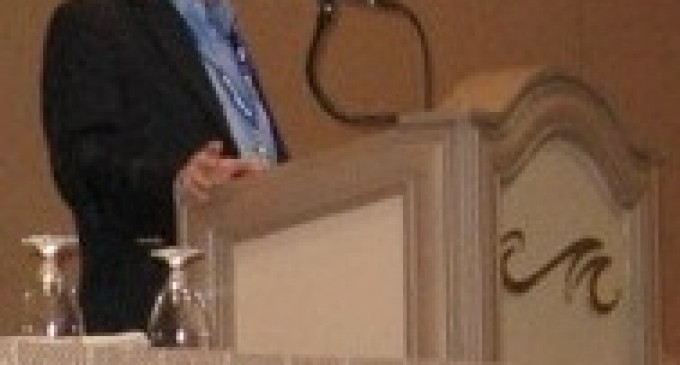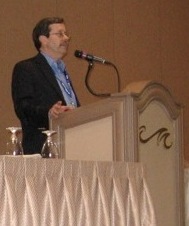Protecting Yourself From Fastener Tariffs

FEATURE

Trade attorney Matthew McGrath speaking on U.S. fastener antidumping petition in Las Vegas in 2009.
Editor’s Note: FIN subscribers had this information several days in advance. Subscribe today to see what you’ve been missing.
It is important for distributors to have clauses in contracts to offset antidumping duties, attorney Matt McGrath advised distributors at the National Fastener Distributors Association spring conference.
“Stay informed,” McGrath emphasized.
McGrath, of Washington, D.C.-based Barnes, Richardson & Colburn, is U.S. counsel to importers in the Nucor fastener antidumping / countervailing duty investigations and appeals.
Importers need to coordinate with manufacturers and trading companies, review pricing policies, have contract clauses on AD/CVD liability and evaluate third country and domestic suppliers.
Foreign manufacturers review pricing and costs, prepare an audit trail, review contract clauses and consider becoming an importer of record.
Nucor filed an AD and CVD petition in September 2009, which the ITC rejected by a 6-0 vote in November. Nucor presently has an appeal pending.
In the petition most low, medium and high carbon commercial standard nuts, bolts and cap screws, including standard J429 grade 2, A307A and A194. There was an exclusion for parts made to an automotive or aerospace manufacturer part number and proprietary or patented fasteners.
McGrath said the unanimous vote was “a bit surprising.” He found the petitioners’ claim did not demonstrate the price effects. Imports remained a stable share of the market and didn’t change even during the recession.
There will be a briefing on the appeal this summer followed by a decision during the autumn of 2010. McGrath ventured that the 6-0 vote was indicative that Nucor did not make its case and reduces its chance in appeals.
Steen Hansen of Bossard North America noted that antidumping duties could force the transfer of production to other countries and thus a “high risk of quality issues” and a costly, time-consuming process.
There will be more China and EU/US trade barriers when tariffs are added.
Importers are more likely to develop new sources than for domestic production to increase.
Bossard was among the companies battling antidumping tariffs. “We did it for our customers at a huge workload and cost,” Hansen said.
In 2009 the total of 33.1% of fasteners consumed in the U.S. were imported – down from 40.3% in 2008. Other recent years: 39% 2007; 38.8% 2006; and 36.7% for 2005. Taiwan is the number one supplier, followed by China, Japan, Canada and Germany. ©2010 GlobalFastenerNews.com
For the latest on U.S. tariff efforts, click HERE.



There are no comments at the moment, do you want to add one?
Write a comment